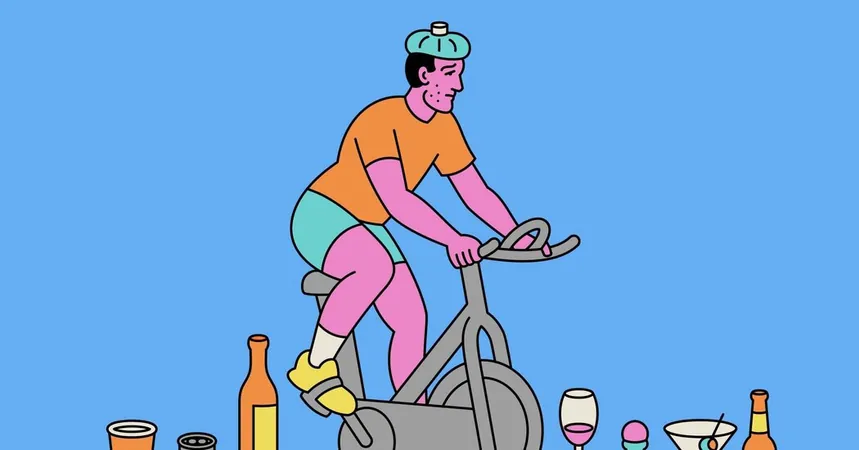
Sweat It Out: How Exercise Can Alleviate Hangovers
2024-12-04
Author: Chun
Understanding Hangovers
After a night of drinking, your body faces a multitude of challenges—dehydration, poor sleep, digestive distress, and even heightened anxiety, according to Dr. Shaan Khurshid, a cardiologist at Massachusetts General Hospital. Each person experiences hangovers differently, and strikingly, no one operates at their best when recovering from alcohol consumption.
Alcohol promotes relaxation, but once its effects fade, you might experience an unwelcome surge of adrenaline, leading to a racing heart and feelings of anxiety. Exercising under these conditions can feel more strenuous than usual, especially if you're already starting with an elevated heart rate. Those prone to heart arrhythmias should tread carefully—intense workouts after a night out might not be the best idea.
Furthermore, alcohol acts as a diuretic, causing frequent urination and slow digestion, which contributes to dehydration. On top of that, late-night munchies often skew towards unhealthy eating, meaning you may not be properly fueled for physical activity the next day.
The Exercise Solution
Though research on the relationship between exercise and hangovers is scant, existing studies hint that exercising while hungover might not be as crazy as it sounds. One study conducted on hikers in Greece indicated that those suffering from hangovers felt significantly more exhausted after a ten-mile hike compared to their sober counterparts.
That said, it’s crucial to rehydrate before hitting the gym, especially when impaired hydration levels can hinder performance. Experts recommend consuming salty snacks and drinking plenty of water to help restore electrolytes lost during the night’s festivities.
When it comes to exercise types, Dr. Peterson advises against high-intensity workouts that require coordination and quick movements—think boxing or rock climbing. Instead, opt for low-impact activities such as walking, light jogging, gentle swimming, or cycling on a stationary bike. Listening to your body is key; if you feel worse while moving, it's a clear sign to stop.
Finding Relief Through Movement
If you've incorporated regular exercise into your routine, you may experience some benefits from a gentle workout after a night out. However, if exercise isn't usually part of your regimen, don’t expect a hangover to disappear after just one session—the struggle to push through could overshadow any potential benefits.
Experts agree that if you start feeling better as you move, it could be the result of those beloved endorphins kicking in. Dr. Khurshid notes that the magic of exercise can often improve your mood, even if you're feeling less than fantastic at first.
So, while reaching for that glass of water and an aspirin post-party is essential, consider giving exercise a chance, too. Just remember to ease into it; the remedy for your hangover may lie in a little movement instead of binge-watching on the couch. Embrace the possibility of turning your day around with a light workout—you might just find it alleviates your symptoms better than you ever expected!



 Brasil (PT)
Brasil (PT)
 Canada (EN)
Canada (EN)
 Chile (ES)
Chile (ES)
 España (ES)
España (ES)
 France (FR)
France (FR)
 Hong Kong (EN)
Hong Kong (EN)
 Italia (IT)
Italia (IT)
 日本 (JA)
日本 (JA)
 Magyarország (HU)
Magyarország (HU)
 Norge (NO)
Norge (NO)
 Polska (PL)
Polska (PL)
 Schweiz (DE)
Schweiz (DE)
 Singapore (EN)
Singapore (EN)
 Sverige (SV)
Sverige (SV)
 Suomi (FI)
Suomi (FI)
 Türkiye (TR)
Türkiye (TR)